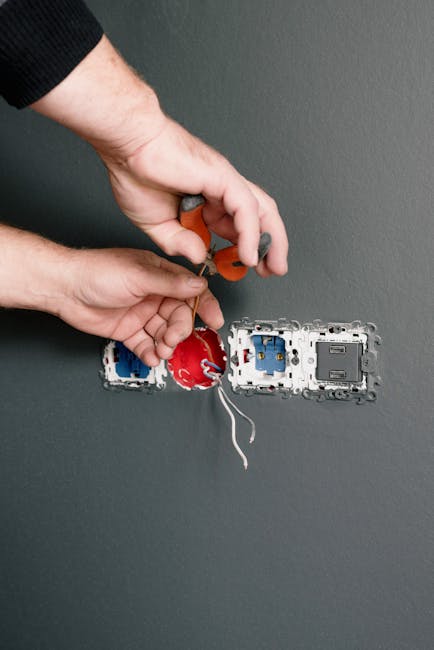 Understanding Electric Repair: Essential Tips and Standards
Understanding Electric Repair: Essential Tips and Standards
Electrical repair work is an important aspect of keeping a secure and useful home or workplace. Whether it’s taking care of a faulty electrical outlet, replacing a light, or repairing circuit problems, understanding the basics of electrical repair can save you money and time while making sure security. In this short article, we’ll discover usual electrical troubles, security precautions, and when to call a specialist.
One of one of the most usual issues homeowners deal with is malfunctioning outlets. This can occur due to numerous reasons, including deterioration, loose connections, or overloading. If you discover that an electrical outlet is not working, the first step is to check the circuit breaker. Resetting a tripped breaker may address the trouble. However, if you experience repeating problems or hear buzzing audios, it may be time to consult an electrician. Keep in mind, detecting electric problems should be approached with caution to avoid risk.
An additional common electrical fixing includes lights. Flickering lights can be frustrating and show a more substantial issue, such as a loosened light bulb or a damaged button. To settle this, begin by switching off the power and examining the bulb and outlets. If every little thing appears secure, the problem could be deeper within the circuitry or the fixture itself. In such instances, changing the fixture or getting in touch with a specialist might be needed to avoid potential threats like electrical fires.
Prevention is crucial when it pertains to electrical repair. On a regular basis checking your home’s electric systems can aid you capture problems early. Search for indicators such as scorch marks around outlets, regularly blown integrates, or cozy electrical outlets. These indications suggest underlying issues that can result in much more significant issues if not attended to immediately. In addition, guarantee your home is geared up with the required safety and security tools, like circuit breakers and ground fault circuit interrupters (GFCI), to safeguard versus electric failings.
Finally, while some electric repairs can be managed by experienced home owners, several situations need the experience of an accredited electrical contractor. Constantly prioritize safety and understand your limitations when dealing with electrical systems. By understanding common concerns and exercising preventive measures, you can preserve an effective and risk-free electric environment in your home or workplace. In circumstances of doubt, don’t wait to connect to a professional. Your safety deserves it.